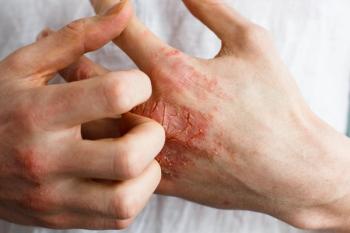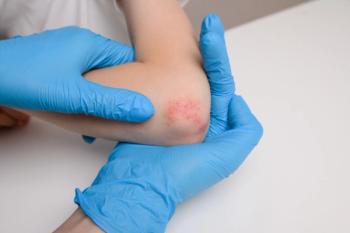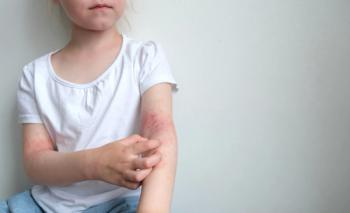
Dermatology's Role in Preventing Infectious Diseases
As skin manifestations are commonly the first thing spotted with infectious disease, dermatologists are in a great position to counsel patients about prevention.
There are a range of dermatologic presentations associated with infectious diseases, including COVID-19, and dermatologists are in a pivotal position to not only treat these conditions when patients present with them, but also to counsel about best practices for prevention, according to Ted Rosen, MD, who delivered a talk on infectious disease at Winter Clinical Dermatology Conference, held January 14 to 19, in Kauai, Hawaii. 1
Rosen is a professor of dermatology at Baylor College of Medicine in Houston, Texas. He emphasized prevention of infectious diseases during his presentation, a particularly timely talk given that the Centers for Disease Control and Prevention (CDC) had, just 2 days prior, emphasized the use of “well-fitting disposable surgical masks, and KN95s,” to prevent the spread of COVID-19.2
In his discussion, Rosen addressed this updated guidance with the audience, noting that the CDC’s statement is likely to be updated again, “I don’t think they are done yet,” he said, but the guidance provides a hierarchy in terms of what masks are best.
In their guidance, the CDC noted that “some masks and respirators offer higher levels of protection than others, and some may be harder to tolerate or wear consistently than others. It is most important to wear a well-fitted mask or respirator correctly that is comfortable … and that provides good protection.”
Rosen noted in
During his discussion, Rosen also discussed another important prevention tool in the physician’s armamentarium, pre-exposure prophylaxis.
On Dec. 20, 2021, the US Food and Drug Administration approved cabotegravir extended-release injectable suspension (Apretude; Viiv Healthcare) for use in at-risk adults and adolescents weighing at least 35 kilograms (77 pounds) for pre-exposure prophylaxis (PrEP).3
Rosen said that this was a major development in HIV prevention as this injectable suspension is given first as 2 initiation injections administered 1 month apart, and then every 2 months thereafter, which he said streamlines a process that can be complicated. Additionally, he said the manufacturer just put in an application for every other month, which “means your HIV positive patients can get 6 shots a year and this is a wonderful advance for those who are at risk,” he said.
References
- Rosen T. What's hot and new in infectious disease? Presented at: Winter Clinical Dermatology Conference. January 14-19, 2022. Kauai, HI.
- CDC updates consumer mask website to emphasize protection, fit, and comfort. CDC. Press release. Issued January 14, 2022. Accessed January 16, 2022.
https://www.cdc.gov/media/releases/2022/s-0114-mask-protection-fit.html - FDA approves first injectable pre-exposure prevention. FDA. Press release. Published December 20, 2021. Accessed January 16, 2022.
https://www.fda.gov/news-events/press-announcements/fda-approves-first-injectable-treatment-hiv-pre-exposure-prevention
Newsletter
Pharmacy practice is always changing. Stay ahead of the curve with the Drug Topics newsletter and get the latest drug information, industry trends, and patient care tips.























